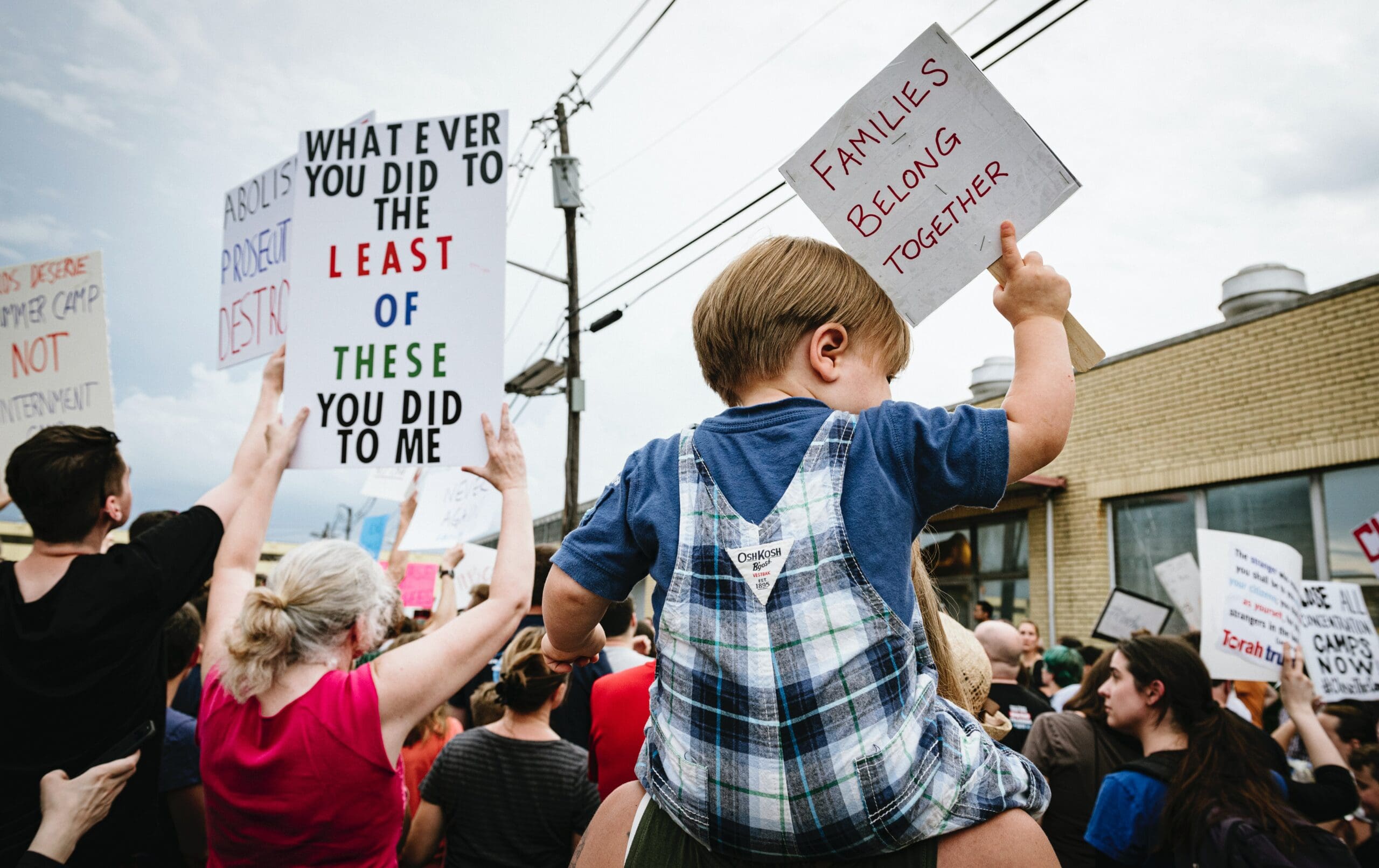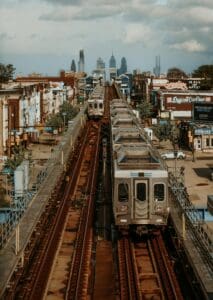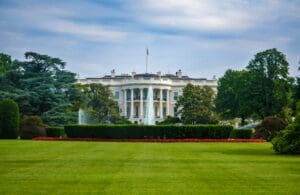One city in California deployed a courageous UBI experiment. That bet paid off. Here is the interview from PBS
Millions of Americans faced economic, housing and food uncertainty even before the pandemic. Two years ago, the mayor of Stockton, California piloted a universal basic income program in an effort to ease the pain of his constituents, sending monthly assistance checks to some people. Now, more than two dozen mayors are expanding the program, funded through private donors. Mayor Michael Tubbs joins Michael Hill to discuss.
____________________________________________________________________
Background:
With the COVID-19 stimulus bill in limbo and unemployment benefits expiring, millions may be facing economic uncertainty as the year ends. Even before the pandemic, economic pressures and income inequality created housing and food insecurities, with many on the brink of poverty.
Two years ago, the mayor of Stockton California, piloted an effort to provide some economic relief to members of his community through a universal basic income program, sending monthly assistance checks to some households. And the idea is gaining popularity. More than two dozen mayors across the country are expanding universal basic income in their cities through private donations–providing monthly assistance checks, that can help local families weather the economic effects of the pandemic.
I recently spoke with Stockton Mayor Michael Tubbs about his program and his thoughts on the stimulus relief bill.
READ INTERVIEW:
Michael Hill (PBS):
Mayor Tubbs, thank you so much for joining us.
So much has been kicked around over the last week or so about stimulus plans and helping the Americans across the country and so forth: $600 kicked around and approved by Congress. Ultimately, the president came out, said $2,000 per person would be more appropriate. What’s appropriate? What’s needed at this point from your perspective?
Mayor Michael Tubbs:
What’s appropriate is what’s been suggested by Senator Harris, Senator Sanders and Senator Mark six months ago, and that’s $2,000 a month reoccurring during this pandemic. We know that COVID-19 has decimated our small businesses. We know that COVID-19 has made people unable to go to work because they’re told to stay at home and shelter in place in quarantine for 14 days. We also know that people’s bills have stayed in place, that people’s bills haven’t stopped being sent to homes and demanding payment.
So we know that each and every month the American people need an income floor. It’s a way to build economic resilience it’s the only way, in my opinion, that we’ll be able to bounce back from this COVID-19 crisis stronger and healthier than maybe we were before.
Michael Hill (PBS):
Mr. Mayor, you make it sound like such an easy thing to do. It’s common sense. Why has it been so difficult?
Mayor Michael Tubbs:
Michael, that is the question of the ages. I mean, Thomas Paine in the late 1700s had talked about the need for an income floor in this country. Dr. King talked about this in the late ’60s before he passed about the need for a guaranteed income.
In Stockton, we piloted the guaranteed income before COVID-19 because even before this pandemic one in two Americans are $500 away from an emergency. And COVID-19 has really exacerbated what we’ve known was a weak economy for working people.
Michael Hill (PBS):
Mr. Mayor, your universal basic income includes $500 a month for 125 people in Stockton. Is that enough? Are people responding to this? What’s the community saying?
Mayor Michael Tubbs:
Well, Michael, I started the project actually as a skeptic, more curious than like this is the answer, but more curious about finding an answer to the issue of economic insecurity.
What I found is a couple of things. Number one, that the $500 didn’t replace work.
It didn’t make people stop working, Stockton didn’t change overnight into a different form of government in a different country. But actually, people worked harder.
People were able to take time off work, particularly jobs that don’t have paid time off to interview for better jobs. And then during COVID-19, I saw how this has really been a lifeline where recipients have told me that the thousands of dollars made it so that they did stay at home when they showed symptoms, because if they were going to go two weeks without a paycheck and without even knowing if there are positive or not, that would be a choice that they were made to continue to go to work and possibly infect a bunch of people, that the $500 has been a lifeline as folks have waited for the unemployment benefits they paid into.
But because of bureaucracy and inefficiencies, it takes a while for those payments to come. And the thousand dollars a month has been left for people to to feel that they can breathe. And also, it’s helped me recognize that there’s inherent dignity in our people, that dignity can’t be attached to work because, well, our folks are disabled.
What about people who work from home? What about caregivers in domestic labor? Usually women, the work they do that isn’t necessarily a job. But it’s hard work and an income floor doesn’t solve all those problems, but solves a lot of them and it helps create the foundation for the other things we need like paid time off, paid family leave, affordable child care, affordable housing, etc.
Michael Hill (PBS):
And this is all privately funded. What’s the feedback from the community or are people saying, well, you know what, this is money that might be wasted? What are you finding in terms of how people are spending this money? They’re using it for basic needs, basic necessities?
Mayor Michael Tubbs:
Yeah. Mike, what’s crazy is that they spend money the way you and I spend money, because there are people like you and me, there are neighbors there, they’re us. So we’re spending money on utilities, on necessities, on delayed medical appointments, on our dentures, tutoring for their kids, paying off credit card debt and maybe splurging a little bit, too, and enjoying life spending when they could travel, on a trip for their kids are spending it to take time off and enjoy life. And I think that’s also been, not a surprise to me, that’s been surprising for a lot of people that we can trust people who are struggling economically with money, just like we trust billionaires with money, that folks with money aren’t poor. And most of the time, because they don’t know how to manage money, they’re struggling economically because they don’t have money to manage because of structural issues or a high school diploma or a college degree in this case doesn’t go as far as it used to, where wages have not kept up with inflation, where all the growth of this country continue to go to those who already have hollowing out the middle class or even those on the bottom with nothing to stand on.
Michael Hill (PBS):
Mr. Mayor, you started the Mayors for Guaranteed Income. It’s an idea that’s catching on across the country. I believe some two dozen mayors are considering implementing this. I know the mayor of Newark, the largest city in New Jersey, Ras Baraka, has been talking about this at least a year or so. Why is this catching on? Why is this garnering the kind of support that you would think that it would?
Mayor Michael Tubbs:
It’s catching on because COVID-19 has made it very, very clear that you could play by all the rules, that you could be working, and that still may not be enough. It’s exacerbated the existing issues.
I mean, in 99 percent of our counties in this country, a minimum wage, full time job is not enough to pay for rent for a two bedroom apartment anywhere in this country.
And I think as mayors, we’re on the front line. We’re hearing constituents who are stressed about their bills, who are worried about eviction moratoriums expiring, who are terrified about cardinals, who are scared to go to the doctor, whose kids are home all day now. And utility bills are going up and figuring out all these bills are going up on my wages, that my wages have decreased.
And we also understand that in 1935, when we face a severe economic crisis in the Great Depression, FDR came out with a bold new deal that included unemployment insurance. It is now 2020, our COVID-19 response cannot just be based on 1935 concepts, but I think we all understand that 2020 demands an extension of sorts on that, and some sort of income floor for most, if not all people to make sure we keep it up with the spirit of a meeting this moment, a moment again of real deprivation for a lot of our small business owners, a lot of our residents, a lot of the essential workers who are really putting their health on the line.
Michael Hill (PBS):
Would we need a stimulus bill, stimulus law at this point, if we had universal basic income across the country?
Mayor Michael Tubbs:
We would need some sort of stimulus bill, but not at the extent that we’re spending now. And I thank you for raising that point, because for me, a guaranteed income is about building economic resilience, because, again, we live in a time of pandemics that in different parts of the country, it’s a flood, it’s a fire, it’s a hurricane, it’s economic disruption, it’s offshoring, it’s automation. And we can’t keep going with this emergency response. It’s the things we know are going to happen.
I think the guaranteed income represents smart contingency planning and ensuring that everyone has a floor so that when not if a pandemic occurs, that people are able to feed their families, are able to go to the doctor, are able to pay their bills, able to keep our economy going.
Michael Hill:
Mayor Tubbs, we will be following your progress there. And we certainly thank you for the time and wish you a lot of luck in the future, sir.
Mayor Michael Tubbs:
Thank you so much. Happy holidays.
_____________________________________________________________________
To listen to interview – please visit: https://www.pbs.org/newshour/show/a-city-made-the-case-for-universal-basic-income-dozens-are-following-suit




















